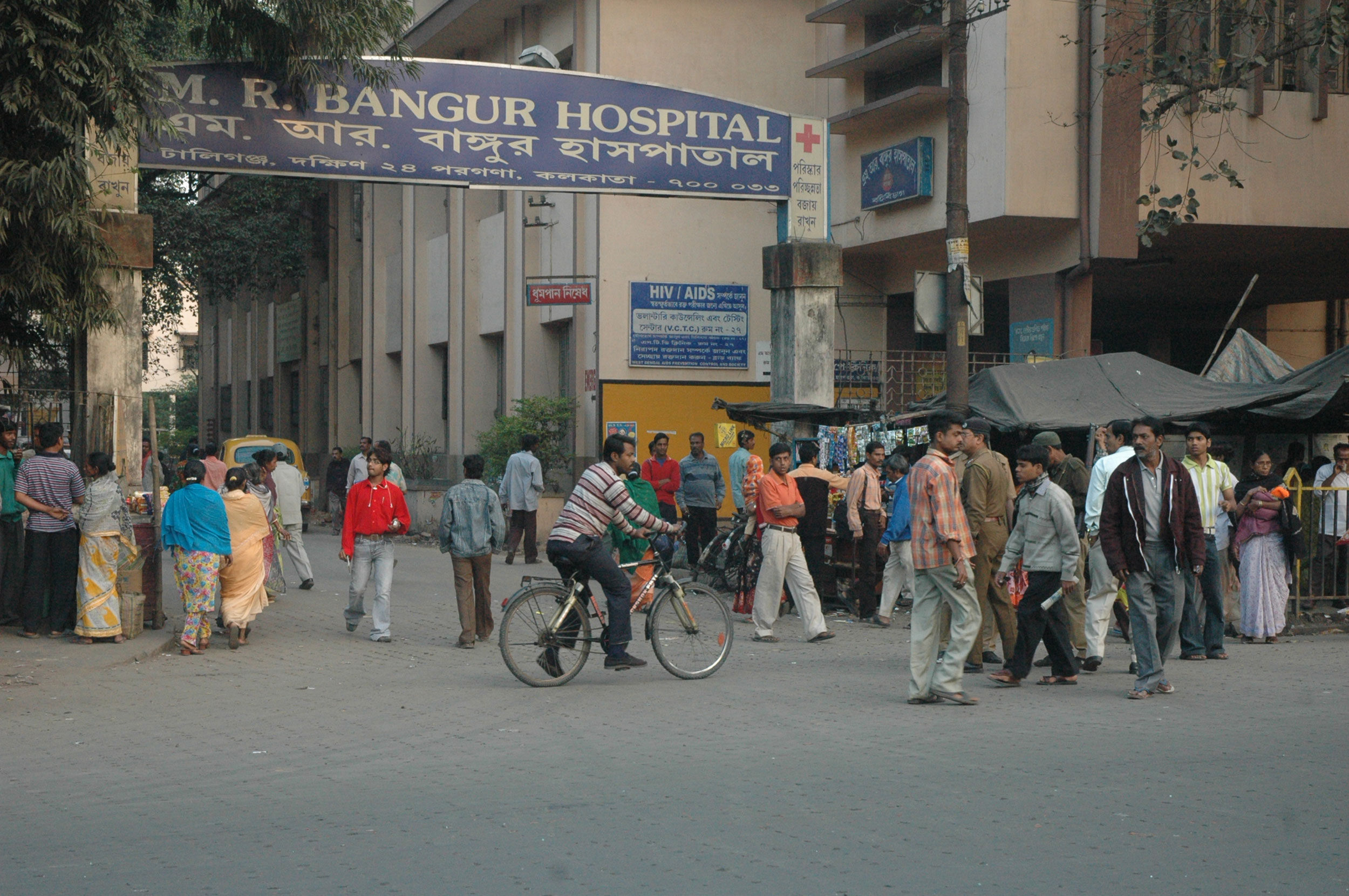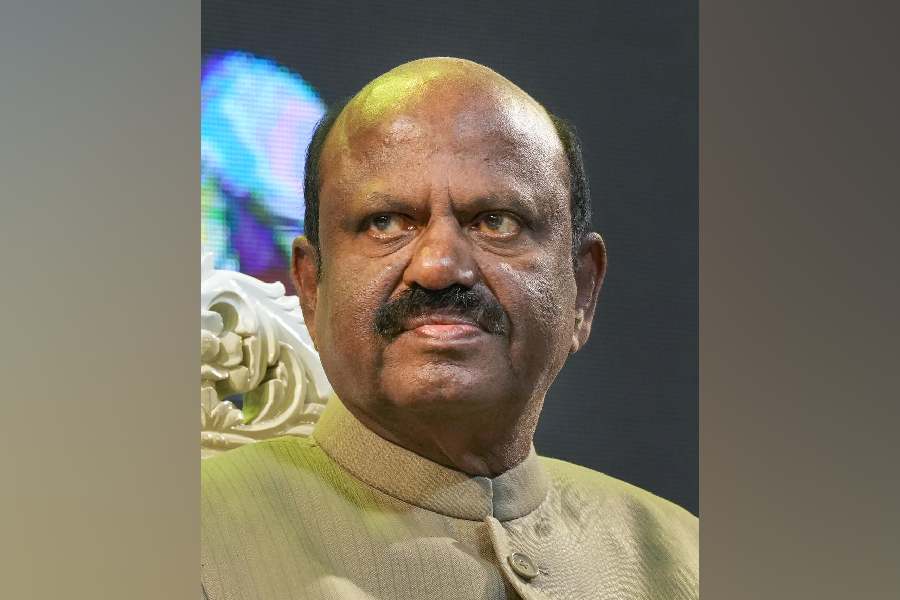Mugneeram Bangur, patriarch of the Calcutta-based House of Bangur, has become the unlikely focal point of interest for legal eagles as a cloud of fear and uncertainty settles over the country’s industrial landscape as a result of the coronavirus pandemic.
The late Bangur patriarch, who formed the industrial dynasty with his brother Ramcoowar, was a well-known philanthropist and builder of colonies in the City of Joy.
At a time the eponymous M.R. Bangur hospital in the city engages the attention of the state authorities and doctors after being turned into a medical facility for Covid-19 cases, the legal fraternity has started to pore over an arcane legal concept — the doctrine of frustration — to find ways to wriggle out of obligations to fulfil terms of contracts using the principle of force majeure.
The doctrine of frustration, a concept in English jurisprudence, had been invoked by the Bangurs to frustrate the execution of a contractual obligation to sell a plot of land under an agreement signed in August 1940 to Bejoy Krishna Roy in a colony that was being developed in the vicinity of the Dhakuria Lakes.
The resulting suit —Satyabrata Ghose vs Mugneeram Bangur & Co —led to a seminal judgment handed down by the Supreme Court in November 1953 that laid down the principles under which a contract could be repudiated under force majeure conditions.
The judgment handed down by a three-judge bench of Justices Bijan Kumar Mukherjea, Vivian Bose and N.H. Bhagwati deals with unforeseeable circumstances that prevent someone from fulfilling a contractual obligation.
Force majeure is the principle that many conglomerates are hoping to invoke as the ground for failure to meet contractual obligations as a result of the sudden and unprecedented situation thrown up by the coronavirus scare that forced the Centre to impose a lockdown in the country.
Debanjan Mandal, partner of solicitor firm Fox & Mandal, says he has been poring over a stack of contracts while being confined like everyone else at home over the past two weeks to understand whether the pandemic and the subsequent lockdown can be invoked as a force majeure condition under the Indian contracts law.
“How this plays out will depend on the wording of the contracts themselves. This is a clause that is rarely read, seldom referred to and probably never used, except once in 60-70 years. The term ‘force majeure’ was used on a large scale during World War II. There was this landmark judgment arising from the Bangur case and a few others. Decades after, we have one such event (the virus outbreak) at hand now,” said Mandal.
Force majeure is a French term that has its roots in English law. Central to this concept is the doctrine of frustration which determines the grant of judicial relief when a court “finds that the whole purpose or basis of a contract was frustrated by the intrusion or occurrence of an unexpected event or change of circumstances which was beyond what was contemplated by the parties at the time when they entered into the agreement”.
In Indian law, however, the concept of impossibility is enshrined in Section 56 of the Indian Contracts Act, 1872.
Hemant Bangur, great-great-grandson of Mugneeram Bangur, remembers the case well.
On Sunday, Bangur recalled that his ancestor was one of the prominent developers of that era who owned acres of land between Tollygunge and Jodhpur Park in the southern side of the city and in the Lake Town area in the northern part of the city.
“He was into development of colonies, building common infrastructure like road and sewerage lines and selling plots, among other businesses,” said Hemant Bangur, chairman of jute firm Gloster.
He recalled that the M.R. Bangur hospital was constructed by the family on its land and then donated sometime after 1948 at the request of Bidhan Chandra Roy, the then chief minister of Bengal.
The case
On August 5, 1940, a contract was drawn between a company owned by Mugneeram Bangur and Babu Bejoy Krishna Roy for the sale of a 5 cottah plot in the Lake Colony area of south Calcutta.
While Mugneeram Bangur & Co was obliged to build roads and drains around the plot and hand it over to Roy, it could not do so as the land was requisitioned by the collector of 24-Paraganas for World War II in 1941.
A small amount of money was collected from the purchasers by way of earnest at the time of agreement. The two sides agreed that the remaining amount would be paid once the construction of roads and drains was complete.
Two years later, the company wrote back to Roy --- who had by then assigned the purchase contract to one Satyabrata Ghose --- expressing its inability to fulfil the terms of the contract as per agreement.
The requisition of the land for the war effort had changed the circumstances, the company argued, and represented something beyond its control.
It offered the buyer two choices: they could cancel the agreement and he could take back the earnest money of Rs 101 within a month. Or, he could continue with the agreement and the company would fulfil its obligations when the plot of land was returned to it after the war.
Ghose declined to annul the contract or take the land which was still under requisition. Some correspondence took place before Ghosh filed an appeal before Alipore Court in 1946, a year after World War II ended and a year before India’s Independence, where his plea to execute the deed of conveyance was upheld.
Ghose’s argument was that the requisition was only for a period of time when it was not possible to build roads or drains and hand over the plot. But now that the war was over, there was no event that precluded the company from fulfilling its obligations under the contract. He won in the lower court and the appeals court but lost in Calcutta High Court.
Eventually, the Supreme Court bench upheld the lower court judgment in 1954.
“In our opinion, the events which have happened here cannot be said to have made the performance of the contract impossible and the contract has not been frustrated at all,” they wrote.
The wording of the contract – which will now become material in all cases where force majeure is argued -- in the end decided the case in favour of Ghose.
The contract of 1940 had obligated to “develop a fairly extensive area which was still undeveloped and make it usable for residential purposes by making roads and constructing drains through it”.
Crucially, however, the contract did not set a time limit for the completion of the development work.
“If there was a definite time limit agreed to by the parties within which the construction work was to be finished, it could be said with perfect propriety that delay for an indefinite period would make the performance of the contract impossible within the specified time and this would seriously affect the object and purpose of the venture,” the court ruled.
“But when there is no time limit whatsoever in the contract, nor even an understanding between the parties on that point and when during the war the parties could naturally anticipate restrictions of various kinds which would make the carrying on of these operations more tardy and difficult than in times of peace, we do not think that the order of requisition affected the fundamental basis upon which the agreement rested or struck at the roots of the adventure,” it added.
Other cases
There was another seminal judgment in 1960 where the Supreme Court struck down a plea to raise the price of ghee on the ground that the cost would go up during World War II. The apex court said in Alopi Prasad & Sons Ltd vs Union of India that the rise in price would not be a reason to frustrate a contract.
The last important case where force majeure conditions became a bone of contention was one involving private producers of electricity. In this case, the apex court stopped the private power producers from raising electricity charges by invoking a force majeure situation arising from the fact that the cost of imported coal had risen sharply after Indonesia (the country from where the input was being imported) changed its policy in 2017.
“This judgment relied on the past verdicts and laid out the doctrine of force majeure in India. The doctrine must be used restrictively. As long as the fundamental basis of the contract is not changed, the doctrine will not be used. Moreover, it will not be allowed if an alternative route to perform the duty is possible,” Mandal explained.
Sushil Mohta, president of the West Bengal chapter of Credai, the body of realtors, predicted many cases would be fought in courts when one of the parties invoked force majeure because of the coronavirus pandemic. “Everyone will try to use it to buttress their point of view,” he said.











